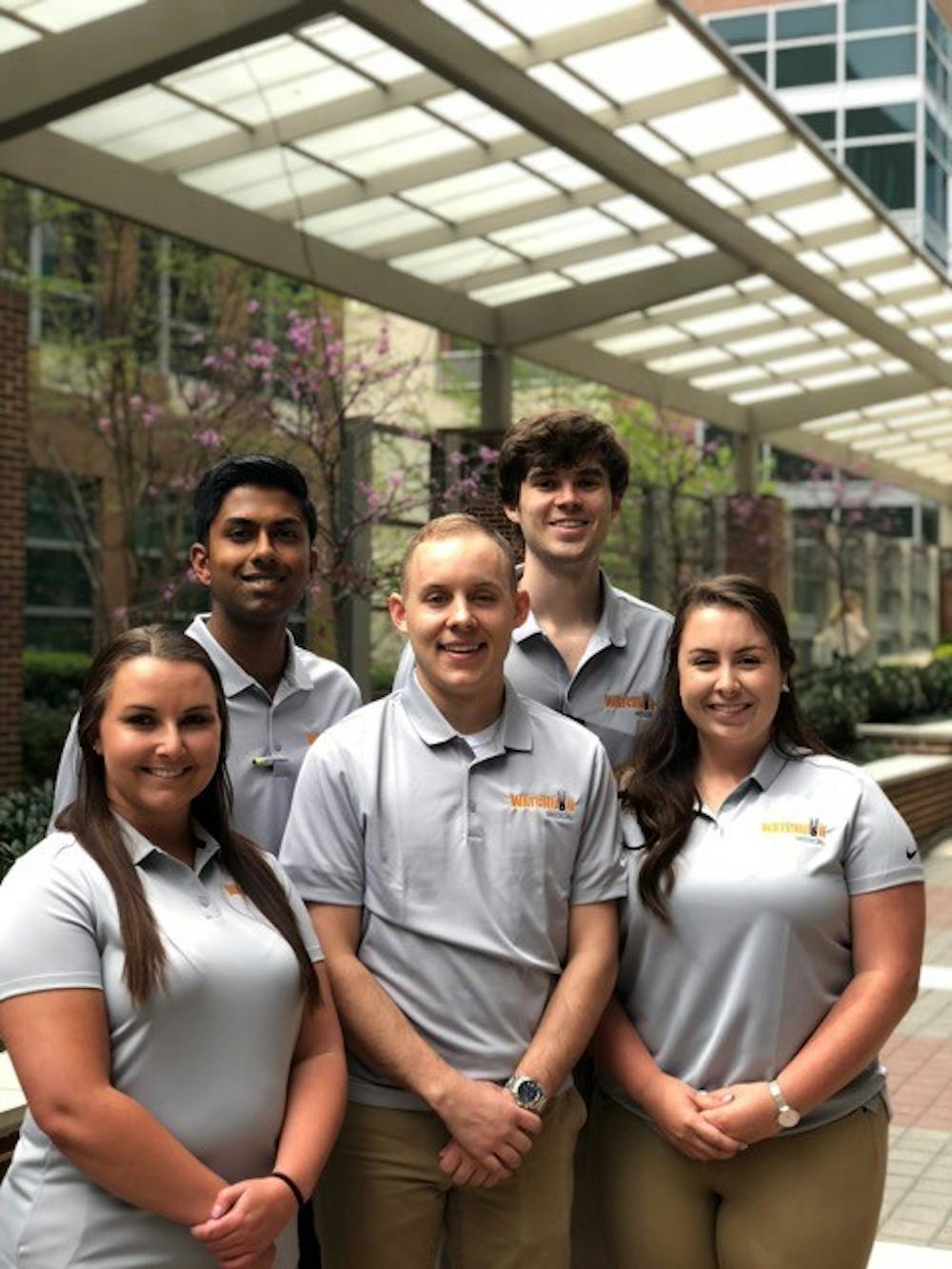When a class project challenged five senior biomedical engineering students to find and solve a medical problem, they decided to focus on newborns suffering from necrotizing enterocolitis — the most common and most dangerous intestinal disease among premature infants.
On a mission to save lives, the students quickly evolved the project into something more than just a graded assignment. It became one of UNC’s most recent student startups, Watchdog Medical.
“The startup originated out of the biomedical engineering senior culminating project," Watchdog co-founder Dhruv Shankar said. "All students have to go through this class and essentially everyone picks a specific area of medicine and shadows clinicians in that field."
The group chose to focus on neonatology and shadowed clinicians and nurses at UNC School of Medicine's Neonatal Intensive Care Unit. The concept for Watchdog Medical developed as the team spent time at the NICU researching the problems that kept newborns there the longest. After they brainstormed a list of different diseases and distilled possible solutions, the group decided to focus on necrotizing enterocolitis and began designing a device that would track the first signs of the disease.
“It took roughly four or five months for us to even narrow it down to this niche in health care," Shankar said. "It took, in fact, less time for us to design our product than it did for us to decide that this was the problem we wanted to focus on."
The team clocked over 75 hours just watching physicians and nurses going about their days in the NICU. They even had the opportunity to talk to families of infants who had been admitted to the NICU in order to further understand the different problems, diseases and gaps in technology that currently exist in this particular clinical environment.
This past weekend, the students of Watchdog Medical represented UNC at the third annual Atlantic Coast Conference InVenture Prize and competed against the top student innovators from each university in the ACC.
“We mainly took this competition as an opportunity to really refine our business strategies, refine our pitch, and to really have a chance to go in front of judges who are involved in investment and essentially people who, down the line, we will need to convince of the value of our project in order to get funding. I think the opportunity to do our pitch in front of actual investors was a valuable learning experience,” Shankar said.
In order to get to the ACC InVenture competition, UNC had its own nomination process where any team that wanted to receive UNC’s nomination had to participate in a competition at the University. The Watchdog Medical team gave their pitch to the Innovate Carolina Office to simulate what the ACC InVenture competition would be like.



